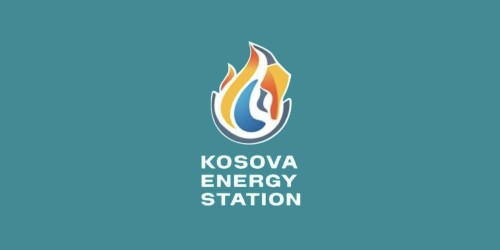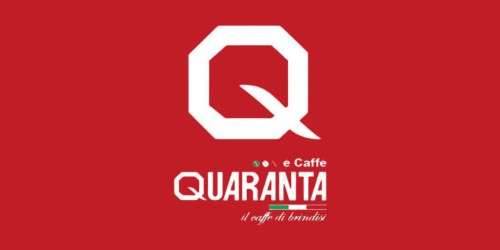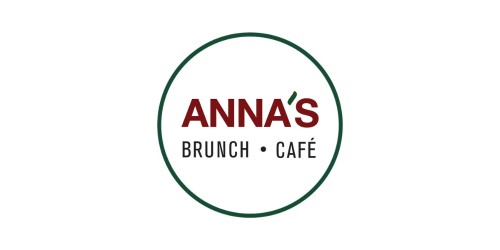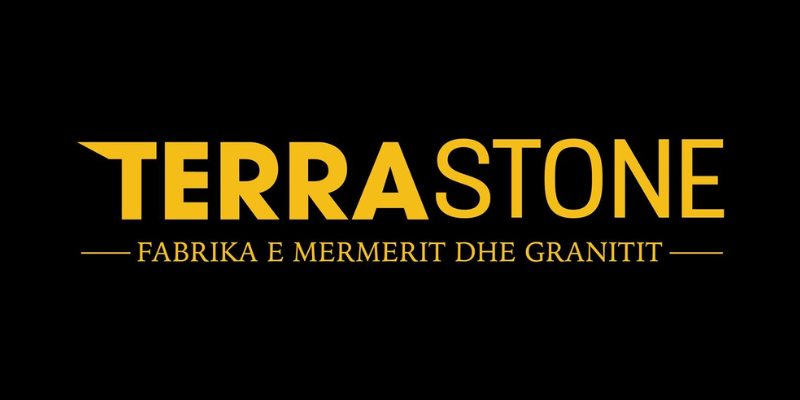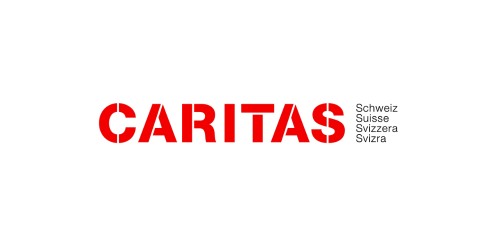
Mid-Term Evaluation
Terms of Reference
Municipal Action for Reintegration and Diaspora – MARDI / P220003
General information
| Field of activity: | Migration, (re)integration and diaspora |
| Project Duration: | 2022 – 2024 |
| Project area/target municipalities: | The whole territory of Kosovo, with a particular focus on: Ferizaj/Uroševac, Fushë Kosovë/Kosovo Polje, Gjilan/Gnjilane, Istog/Istok, Lipjan/Lipljan, Pejë/Peć, Podujevë/Podujevo, Prishtinë/Priština, Prizren, Rahovec/Orahovac, Suharekë/Suva Reka and Vushtrri/Vučitrn. |
| Implementing partners: | Caritas Switzerland in Kosovo (CACH) – lead organization JRS in Kosovo – Jesuit Refugee Services (for Outcome 2) GERMIN – Diaspora Engagement Activities (for Outcome 3) Up to 7 Diaspora Investment Projects (local and diaspora investors, activity in Outcome 3) |
| Institutional collaborators: | Ministry of Internal Affairs, Department for Reintegration of Repatriated Persons and Integration of Foreigners Ministry of Industry, Entrepreneurship and Trade, Kosovo Investment and Enterprise Support Agency – KIESA Ministry of Regional Development, project donor 12 target municipalities in local level (presented under project area) |
| Target groups: | Repatriated persons and refugees, staff of Kosovar municipalities (MOCR/Municipal Offices for Communities and Return, CSW/Center for Social Workers, education departments, MIA regional coordinators and EO/Employment Offices), diaspora organizations and their members |
| Funded by: | Ministry of Regional Development in Republic of Kosovo, Government Principality of Liechtenstein, Swiss Agency for Development and Cooperation – SDC and target municipalities in specific economic integration activities |
About Caritas Switzerland in Kosovo
Caritas Switzerland (CACH) is an independent Swiss NGO, engaged in Switzerland and in more than 20 countries worldwide, including Kosovo. Our mission is to prevent, combat and eradicate poverty in a sustainable manner. To achieve this goal, CACH employs a policy of equity: we support inclusive communities with opportunities for everyone regardless of their ethnic background, group affiliation or gender. CACH has been working in Kosovo since 1999, focusing on social inclusion, rural development, and rehabilitation.
The bilateral Country Programme defines country-specific outcomes: in the area of migration, CACH in Kosovo has been focusing on the reintegration of Repatriated Persons (RPs) in the last five years. The approach of CACH, combining labor market measures with psycho-social services is unique in this field and fits well for particularly vulnerable RPs, which face diverse, interlinked challenges and need specific support. During its first project on this topic, CACH has developed detailed concepts and manuals for project implementation, which are ready to be scaled up and out. With the additional focus on income generation, CACH has also good experience in supporting skills enhancement and economic empowerment through counseling, business support, on-job training and job placement.
Caritas Switzerland advocates for the rights of asylum seekers, refugees, and migrants. CACH aims to meet basic needs, offer legal advice and psychosocial support and to make educational and employment opportunities available. Leaving one’s own country and living in dignified conditions – that is a human right, regardless of nationality, religion, gender or any other status. With its projects, Caritas Switzerland contributes to self-determined, dignified and safe migration.[1]
Background information and rationale of the MARDI project
In January 2022, CACH in Kosovo started implementing the Project “Municipal Action for Reintegration and Diaspora” – MARDI, seeking to address the challenges exacerbated by the COVID-19 pandemic for RPs. The MARDI project aims to enhance coordination amongst multiple stakeholders to address the underlying and longer-term needs of people returning and integrating. At the same time and under the lens of diaspora cooperation, the project aims to make use of the untapped potential of the diaspora to see back-migration as something positive, that can be combined with investment and economic development in increasingly attractive communities in Kosovo. In particular, the MARDI project reaches to target beneficiaries and provide them with psycho-social and economic support based in a holistic approach that is increasingly practiced in municipalities and is being implemented consistently. Additionally, to ensure sustainability, capacity building is provided to psychologists and social workers living and working for the municipalities, as well as, to all front-line responders/staff of Kosovar municipalities, including MOCRs, CSWs, education departments, MIA regional coordinators and Employment Offices (EOs) etc.
Intervention logic:
The MARDI project applies an integrated approach that bridges the gaps between (1) the short-term requirements for reintegration made through the commitment of governmental actors and (2) the medium and longer-term socio-economic requirements for the integration of target groups through proactive and targeted services. The project focuses on the capacity building of across three levels:
- Municipal actors seeking to promote better local governance on re-integration
- Individual returnees, asylum seekers, refugees and their families and
- National inter-organizational actors seeking to develop greater impact through supports for returnees, asylum seekers, refugees
This is underpinned by the dialogue between Kosovar diaspora and Kosovo`s institutions to be strengthened and diaspora’s know-how and financial capital to be utilized for the economic development of Kosovar municipalities.
Target municipalities covered in region based:
| Center | East | West | North | South
|
Fushë Kosovë/Kosovo Polje Lipjan/Lipljane Podujevë/Podujevo Prishtinë/Priština | Ferizaj/Uroševac Gjilan/Gnjilane | Istog/Istok Pejë/Peć | Vushtrri/Vučitrn | Prizren Rahovec/Orahovac Suharekë/Suva Reka |
Specific Objectives of the Evaluation and Evaluation Questions
The purpose of this mid-term evaluation is to assess the project’s relevance and the progress made towards achieving the project’s objectives and identify areas that require adjustment. The mid-term evaluation will focus on the project’s implementation, outputs, outcomes and impact. The mid-term evaluation is expected to provide recommendations in the field of migration, (re)integration and diaspora that require improvement, identify any unexpected challenges faced and suggest ways to overcome them. The specific objectives of the evaluation are the following:
- Assessing the relevance, progress, and efficiency and impact of the program: The mid-term evaluation process will provide inputs and recommendations based on the project progress reports and results and provide further improvements on the project implementation activities.
- Engagement of stakeholders: The mid-term evaluation process will ensure engagement and cooperation of all project stakeholders in the evaluation process, assess the engagement approach and provide further improvements on the project implementation activities.
- Ensuring accountability and transparency: The mid-term evaluation process will provide a general overview of the accountability and transparency of the project based on the efficiency of resources use and management arrangements.
- Briefly assess and give a general outlook on the potential impact of the project.
- Documenting lessons learned: Through the mid-term evaluation process, lessons learned and further inputs/suggestions on improvement for the following project implementation phase will be provided. This objective is crucial to the evaluation process and will be developed through a debriefing workshop.
By addressing these main purposes in the scope of the mid-term evaluation process in the field of migration, (re)integration and diaspora, the evaluation can provide valuable insights into the project’s relevance, effectiveness, efficiency, and impact.
Evaluation Questions
The selected evaluator(s) will complete the Evaluation Matrix (Annex of the Evaluation Process). The focus in the evaluation process should provide answers to the below listed questions according to the OECD DAC Network on Development Evaluation (EvalNet) that has defined six evaluation criteria: relevance, coherence, effectiveness, efficiency, impact and sustainability.[2]
Relevance and strategic fit
- How does the project align with the CACH strategy and national migration and diaspora strategies?
- How relevant is this intervention concerning the integration of repatriated persons and refugees in Kosovo (target group of project)?
- Is the project relevant to the identified needs of beneficiaries (target group of project)?
- How is the collaboration in line with the national and local level (government/ministries, municipalities and/or agencies), international and local NGOs in the field of migration, project partners and project donors?
- What is the position of CACH/MARDI project towards the cooperation with the relevant stakeholders/actors in the field of migration?
- Has the risk assessment or self-assessment process with selected implementing partners contributed to the selection process (contracting of the partners) and how well have the mitigation measures been addressed in cooperation with the implementing partners?
- What were the key barriers or challenges resulting from the project implementation period and how they were addressed?
Project progress and effectiveness
- Have the envisaged outcomes and indicators of the project been achieved according to the implementation time plan for the period? Have the implementing partners completed the target indicators as stated in the proposals and based on the interim and relevant final narrative reporting and monitoring results?
- To what extent do the project interventions contribute to assessing beneficiaries’ needs (target group of the project) in reintegration, integration and diaspora field as outlined in the Project document? How is the needs assessment process of the target project beneficiaries completed and documented? Does the assessment process present any obstacles or challenges during the counselling process of the target beneficiaries?
- How effective are the objectives and outputs achieved during this period and documented based on the reporting documents? Were the applicable documents appropriate to monitor, evaluate and document the project indicators and results?
- What are the suggestions/recommendations for partner organizations/institutional collaborator in order to better achieve and document project objectives?
- Are the inputs and recommendations from the implementing partners and institutional collaborators taken into consideration and can they better contribute to the positive and measurable project results?
- To what extent have the regional municipal officials and coordinators contributed in capacity building activities?
- To what extent have the B2B meetings and diaspora community gatherings contributed to the outcome results in Diaspora Engagement Activities?
Efficiency of resource use and management arrangements
- Were the resources available for intended interventions? How were the administrative, logistics and monitoring capacities disseminated? Were the resources efficiently/economically utilized as such?
- Was the input cost efficient in relation to the number and the quality of the support target beneficiaries in different fields? Did the actual or expected results (outputs and outcomes) justify the costs incurred?
- Are there more efficient ways of delivering more and better results (outputs and outcomes) with the available inputs/budget?
- Have the project team capacities been used in knowledge, monitoring and facilitation roles?
- Is there a monitoring and evaluation system in place? To what extent does the system provide accessible and measurable standard/general indicators for the project objectives and outputs? What are the recommendations to provide a better monitoring mechanism system and document the project results?
- The evaluation should help to understand how and why the project has obtained or not the specific results from output to potential impacts, how changes in the context have influenced progress, and what adjustments are needed.
Scope of the Evaluation
The main purpose of this mid-term evaluation is to provide an independent assessment of the progress to date, through an analysis of relevance, effectiveness, efficiency, and impact. Furthermore, the evaluation process will assess the first implementation phase (18 months) of project activities conducted and implemented during the period 2022 – 2023 to provide improvements based on the findings from the field and support on further project implementation recommendations/phase. The mid-term evaluation results will serve as a base and practice for the MARDI project team and stakeholders on further improvement and development of project cycle process and concrete implementation on project results. To ensure proper evaluation, the MARDI project team will assist the selected evaluator(s) and ensure that all documents/requests from the respective provider(s) are supported and submitted accordingly. Moreover, the contracted evaluator(s) will cooperate with the MARDI project team to coordinate meetings and consultations with project stakeholders and/or third parties in accordance.
The mid-term evaluation will cover the whole implementation period until the time of evaluation, this is from 1. January 2022 until 30. April 2022 for the inception phase, and from 1. May 2022 until 1 July 2023 for the implementation of project activities. The evaluation will analyse the whole scope of the project and its results framework, which comprises all elements of the intervention logic, project documents and relevant documents/materials.
The evaluation duration will be from 17 July 2023, until 16 October 2023. CACH/MARDI, project partners and donors will provide feedback in a period of maximum 15 days to the evaluator(s) which should be considered in the final version of the report.
Travel expenses and other relevant expenses resulted from the evaluation process shall be included in the financial proposal/budget breakdown. CACH/MARDI project will not pay any additional costs/expenses that may arise from the evaluation process except the financial amount presented and agreed on the service agreement with the evaluator(s) Available budget foreseen for the evaluation process is 8,000.00 EUR.
Approach and Methodology
In the application/proposal the applicant should specify in detail the methodological approach and provide practical examples/data collection methods. The selected evaluator(s) may refer to the following approach and methodologies during the evaluation process (non-exhaustive list):
- Analyzing and comparing monitoring performance data and indicators achieved in the respective project implementation period, project and partners reports, steering committee reports.
- Primary data (interviews, surveys/questionnaires) conducted from the direct project beneficiaries/officials that have been supported in the respective project implementation period.
- Secondary data (desk review/study) based on the developed project documents, migration and diaspora related policies and strategy, regulation, and applicable document in the field of migration and diaspora. Furthermore, the MARDI project will share documents/materials developed and financed from the MARDI project with the selected evaluator(s).
- Focus group Discussions and Key Informant Interviews with project stakeholders, project implementing partners and project donors in order to conduct a participatory approach for evaluating the achieved results in the respective project implementation period, consultative meetings with relevant project stakeholders and other partners/actors in the field of migration and diaspora.
- Reflective workshop on the first draft with achieved project results, challenges and improvements based on the recommendations with project team, implementing partners and institutional collaborators. (All other logistical and administrative costs related to the workshop: venue, translation etc. will be covered by CACH, MARDI Project)
Guiding Principles and Values
Caritas Switzerland undertakes to foster and respect the rights of beneficiaries in accordance with the UN conventions and treaties and the principles of international law. Furthermore, Caritas Switzerland undertakes to comply with the legal provisions of the Kosovo. Caritas Switzerland fosters a culture of trust and respect.
Caritas Switzerland in Kosovo relies the guiding principles and values on CACH Code of Conduct. The service provider respects confidentiality, personal rights, and data protection during the evaluation process and afterwards. The evaluation report results will be communicated only to the CACH/MARDI project staff and project donor(s) and partners. The service provider is not allowed to share any information and/or evaluation results without prior notification to the CACH/MARDI project staff. The service provider will sign a copy of the Code of Conduct document and attach as Annex to the service agreement.
Professional Qualifications
Eligible candidates/applicants: Open for local evaluation specialists (individual or team)
- MA degree in social sciences and/or relevant field of study.
- More than 5 years of experience in monitoring and evaluation of development projects, particularly in the field of migration and diaspora, writing evaluation reports and applying data collection methods.
- Ability to analyze, collect and present data and findings also considering recommendations on further project implementation of activities. The participation in the mid-term evaluation process should be documented/proven in written and attached to the application documents.
- More than 5 years of experience in working with international development and evaluation projects/programs according to the OECD/DAC criteria.
- Knowledge in application of holistic and graduation approach with relevant project beneficiaries in the field of migration and diaspora.
- Language proficiency in Albanian and English. Serbian language is considered an asset during the recruitment process.
- Strong analytical skills, flexibility, and creativity.
- Available to travel in project areas/target municipalities and as well to the relevant project stakeholders, and to reflect on field outcomes.
Deliverables and Schedule
Proposed workdays for the evaluation team and deliverables
| Phase | Tasks and deliverables | Number of days: |
| 1 | Initial meeting with CACH, presentation and clarification of the TOR and project document, agreement Desk research, analysis of the current situation in national and local level, strategies, regulation, and policies Inception report from the analysis process | 9 |
| 2 | Field visits and interviews with project partners, stakeholders and beneficiaries Analysis of collected data | 20 |
| 3 | Draft report based on the inception report, analysis of the field and collected data, debriefing results etc. Debriefing workshop with project partners and other stakeholders to discuss the preliminary findings | 6 |
| 4 | Finalize the evaluation report considering all inputs, comments and suggestion from CACH and other parties
| 5 |
| Total days for the assignment | 40 days | |
Structure of the Proposal and Submission Guidelines
The application process is open until the 9th of July 2023 16:00 hrs. Submission of the completed application should be delivered to the following email address [email protected] in CC [email protected] noting the subject: Mid-term evaluation of MARDI project – P220003_2023.
The application dossier should consist of the following documents:
- Professional experience (CV) of the applicant (individual expert/or group of experts) specifying all the professional expertise with particular focus on the monitoring and evaluation of the projects in the field of migration, reintegration, and diaspora.
- Suitability for the assignment and match with previous work experience, qualifications etc.
- Methodology that will be applied and specifying the practice of data collection methods during the evaluation process.
- Work plan and division of the work between the team.
- Financial proposal and budget breakdown.
Annexes
- Annex 1. Logical Framework of MARDI project
- Annex 2. Monitoring Results Measurement/Framework
- Annex 3. Evaluation Matrix
Acronyms:
- CACH – Caritas Switzerland,
- CSW – Center for Social Work
- EO – Employment Office
- JRS – Jesuit Refugee Services
- KIESA – Kosovo Investment and Enterprise Support Agency
- MIA – Ministry of Internal Affairs
- MOCR – Municipal Office for Communities and Return
- MRD – Ministry of Regional Development in Kosovo
- NGO – Non-governmental organization
- RP – Repatriated Persons
- SDC – Swiss Agency for Development and Cooperation
[1] https://www.caritas.ch/en/migration/
[2] https://www.oecd.org/dac/evaluation/revised-evaluation-criteria-dec-2019.pdf

-thumbnail.jpg)

